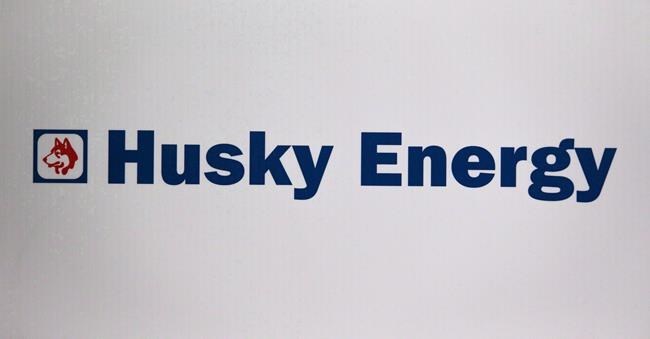CALGARY — Cenovus Energy Inc. is aiming to cut as many as one in four jobs — potentially more than 2,000 workers — if it succeeds in its $3.8-billion friendly takeover of rival Husky Energy Inc.
The oilsands producer plans to trim between 20 and 25 per cent of the 8,600 employees and contractors currently working at the two companies, said Cenovus spokesman Reg Curren in an email on Tuesday, two days after the takeover was announced.
That would equate to between 1,720 and 2,150 workers. Curren said most of the cuts are expected to take place in Calgary, where both companies have downtown headquarters.
"As with any merger of this type, there will be overlap and there will be some difficult decisions as we work to create a combined organization best positioned for the future," he said.
"The estimate is that the reductions will be approximately 20 to 25 per cent of the combined workforce, which is currently about 8,600 employees and contractors."
It's the latest blow to the Calgary-centred oil and gas sector after Suncor Energy Inc. announced three weeks ago it will cut as many as 1,930 jobs over 18 months to reduce total staff by 10 to 15 per cent.
Job cuts are also expected in the Canadian operations of Royal Dutch Shell, which announced in September it would eliminate between 7,000 and 9,000 jobs worldwide by the end of 2022, and, to a lesser extent, from BP, which said in June it would cut around 10,000 jobs from its global workforce.
“This is a sign of the times in the energy industry that companies are having to navigate being more efficient and more productive," said Mary Moran, CEO of Economic Development Calgary.
"In the long run it should make for a stronger Calgary-based Canadian energy sector, but the job reductions are painful. It’s going to be a bumpy road for Calgary.”
She added Suncor’s plan revealed this week to move its Petro-Canada head office and most of the associated 700 employees to Calgary from southern Ontario next year shows "faith in Calgary."
The recent job cuts could make worse Calgary's nation-leading downtown office vacancy rate, which climbed to 28.7 per cent as of the end of September from 27 per cent in June, according to Greg Kwong, regional managing director for real estate firm CBRE in Calgary.
"The market is quite bad right now and to layer on more sublease space ... makes quite a difficult market from a landlord's perspective," he said, noting lease rates have fallen as the vacancy rate rises.
"It's been happening on a smaller scale for quite a few years where smaller producers, smaller oil and gas companies are merging or trying to find efficiencies or laying off people."
The pandemic early this year caused demand for fossil fuels to plummet, leading to lower oil prices and causing Canadian companies to cancel more than $8.6 billion in capital spending and cut 19,000 jobs, according to the Canadian Association of Petroleum Producers.
Synergies from the all-stock buyout of Husky by Cenovus are expected to result in annual savings of $1.2 billion, largely achieved within the first year and independent of commodity prices, the companies said.
About $400 million of the savings are expected to come from "workforce optimization,'' along with savings from IT and procurement, said Cenovus CEO Alex Pourbaix in a conference call Sunday to discuss the proposed buyout.
"When you combine two companies with similar geographies and somewhat similar operations, you're always going to have some overlap ... in this case, there would probably be relatively a little more weight on the head office functions, just because we aren't quite as overlapping in the field,'' he said.
He added another $200 million in savings will come from sharing technical expertise and the other $600 million through better use of capital by focusing on assets with higher return potential.
The combined companies are expected to be able to sustain output at about 750,000 barrels of oil equivalent per day for about $2.4 billion a year, 25 per cent less than required separately, Pourbaix said.
The transaction has been approved by both boards and is expected to close in the first quarter of 2021, pending shareholder and regulatory approvals.
Husky is controlled by Hong Kong billionaire Li Ka-Shing with about 70 per cent of shares and he has agreed to the transaction.
Cenovus shares rose by 6.7 per cent to $4.77 and Husky shares were 7.3 per cent to $3.81 in trading on the Toronto Stock Exchange on Tuesday.
This report by The Canadian Press was first published Oct. 27, 2020.
Companies in this story: (TSX:CVE, TSX:HSE, TSX:SU)
Dan Healing, The Canadian Press



